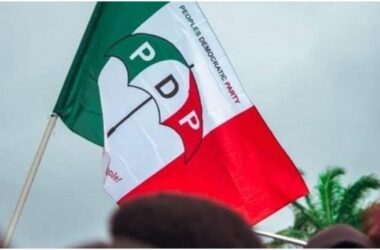The Central Bank of Nigeria (CBN) has raised concerns about potential threats to the country’s external reserves growth, following the removal of fuel subsidies and increasing external debt repayments.
According to the apex bank, these challenges could limit Nigeria’s ability to build up its foreign reserves in the next few years.
In its latest report, “Monetary, Credit, Foreign Trade, and Exchange Policy Guidelines for Fiscal Years 2024/2025,” the CBN outlined several factors that could negatively affect reserve growth.
These include the elimination of fuel subsidies, rising import bills, and the mounting cost of servicing Nigeria’s external debts. These financial pressures, combined with external economic risks, are expected to impact the country’s financial stability.
CBN said, “The outlook for Nigeria’s external sector in 2024/2025 is optimistic, on the expectation of favorable terms of trade, occasioned by sustained rally in crude oil prices and an improvement in domestic crude oil production.
“The positive outlook is supported by the sustenance of crude oil price, propelled by the decision to cut production, and gains from capital flows and remittances.
“However, lower crude oil earnings, fuel subsidy removal, rising import bills, and increased external debt servicing obligations could pose downside risks for the accretion to external reserves.
“In addition, the sustained monetary policy tightening by central banks across advanced economies increases the risk of capital outflow.”
On Nigeria’s output growth, CBN said: “Nigeria’s output growth is expected to maintain a positive trajectory in 2024/2025.
“The growth prospects are dependent on continued policy support in the agriculture and oil sectors, reforms in the foreign exchange market, and the effective implementation of the Finance Act 2023 and the 2022-2025 MTNDP.
“The risk to the outlook is still tilted to the downside, characterized by significant headwinds such as rising energy prices emanating from lingering effects of the Russia-Ukraine war, and the persisting security and infrastructural challenges, which could undermine the growth outlook in the short to medium term.
“Domestic prices are expected to remain elevated through 2024/2025, on the back of spillovers from global supply constraints, and exchange rate pass-through.
“More so, the persisting security and infrastructural challenges could exacerbate inflationary pressures.
“The performance of the fiscal sector is expected to remain on a positive recovery trajectory in 2024/2025.
“This outlook is contingent on the effective implementation of the Finance Act 2023 and restructuring of key revenue-generating MDAs to boost non-oil revenue.
“However, low domestic crude oil production, growing public debt, lingering insecurity, global economic slowdown, and the Russia-Ukraine war, could pose significant downside risks to fiscal operations in the short-to-medium-term.
“The financial sector is expected to remain resilient in 2024/2025. The outlook mirrors the efforts of the CBN in continuously monitoring emerging vulnerabilities and risks in the system, including periodic stress tests, examination exercises, and the provision of risk mitigants.”










